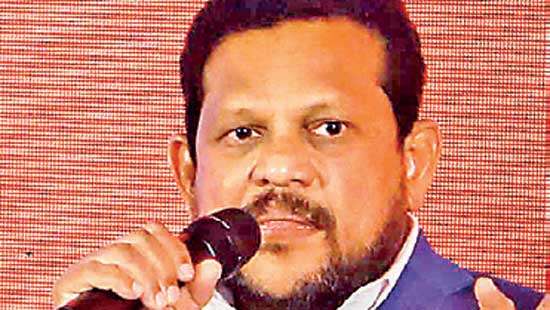By: Staff Writer
November 12, Colombo (LNW): The Joint Apparel Association Forum (JAAF) has emphasized that policy consistency is vital for Sri Lanka to increase its apparel exports from an estimated $5 billion in 2024 to $8 billion in the coming year.
According to JAAF, one of the main factors holding back growth in the sector is the government’s failure to implement consistent policies, leading to stagnation in foreign investment and export growth.
JAAF Deputy Chairman Felix Fernando stressed that attracting larger markets and additional investments is essential for achieving this ambitious goal.
He pointed out that Sri Lanka has not seen significant foreign direct investment in the apparel sector since the late 1990s, a situation that has worsened due to policy inconsistency. Fernando argued that achieving the export target will require strong government support and the creation of a stable policy environment.
During a recent webinar, JAAF Secretary General Yohan Lawrence highlighted the persistent lack of progress in the export sector, particularly the apparel industry.
Despite promises made in every presidential election manifesto to boost exports, Sri Lanka’s apparel export income has remained stagnant at between $5 billion and $6 billion for the past decade.
Lawrence pointed out that the country lacks a clear, consistent policy framework to translate these promises into real action, which has led to a decline in global competitiveness and reduced investor confidence.
Fernando also reflected on the challenges of policy inconsistency, recalling how his company, Omega Line, which moved from Italy to Sri Lanka in 1999, has not seen any significant foreign investors enter the apparel industry since then, even during the height of Sri Lanka’s conflict.
He specifically criticized the government’s decision to abolish the Simplified Value-Added Tax (SVAT), a move recommended by the International Monetary Fund (IMF). While the aim was to improve tax transparency, exporters argue that the timing of the change could harm their cash flow and reduce competitiveness.
In addition to consistent domestic policies, Fernando also stressed the importance of trade agreements in attracting new investments.
He pointed to the success of countries like Vietnam, which has secured multiple free trade agreements (FTAs) despite its political system, and suggested that Sri Lanka should pursue similar agreements with countries like India, China, Japan, and South Korea.
Such agreements could provide significant trade concessions, helping Sri Lankan exporters compete more effectively in the global market.
In conclusion, JAAF’s leadership calls for a unified approach to export policies, greater political stability, and stronger trade agreements to ensure the apparel industry’s growth and enhance Sri Lanka’s position in the global market.

